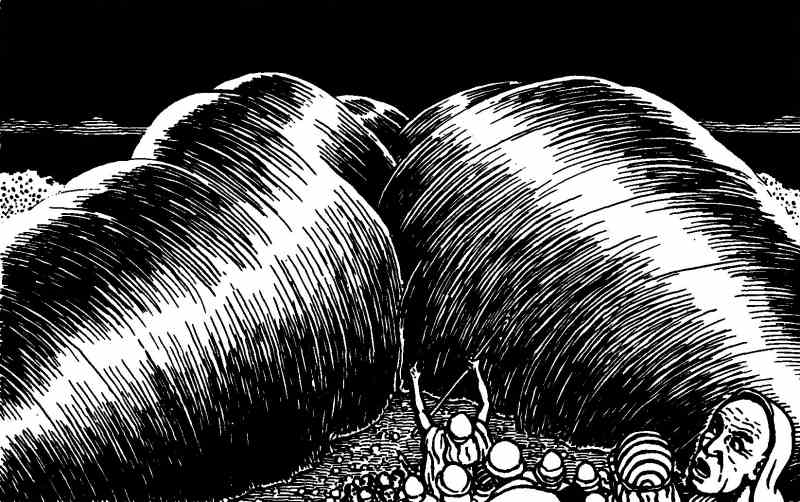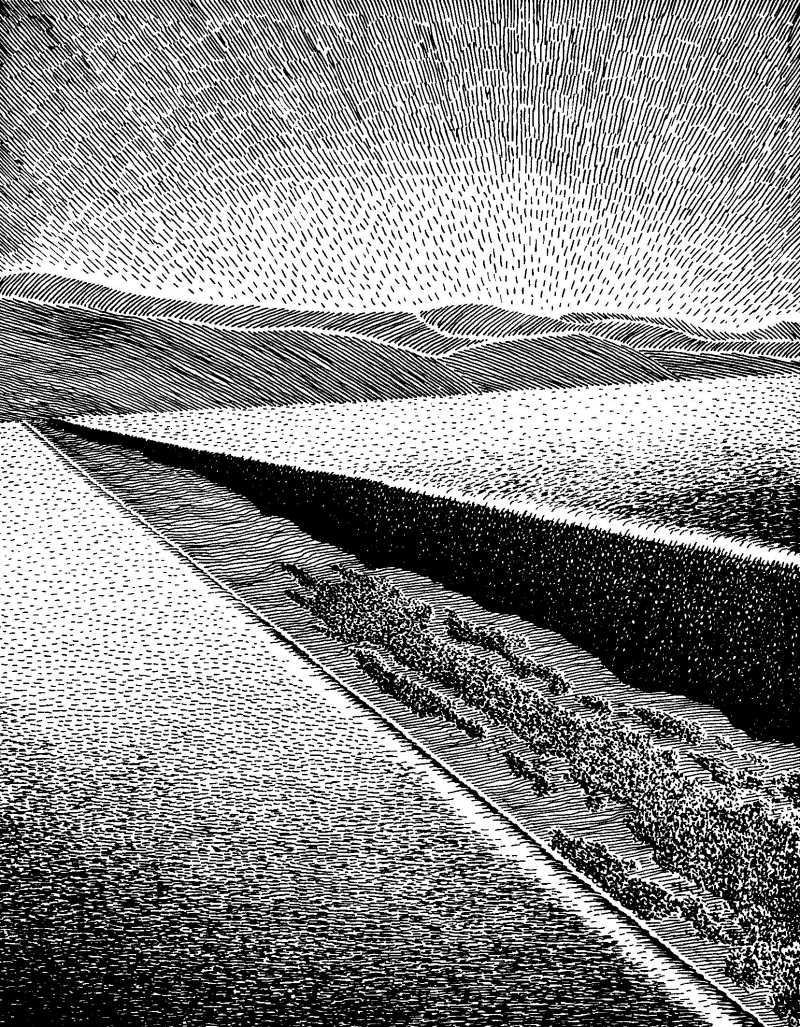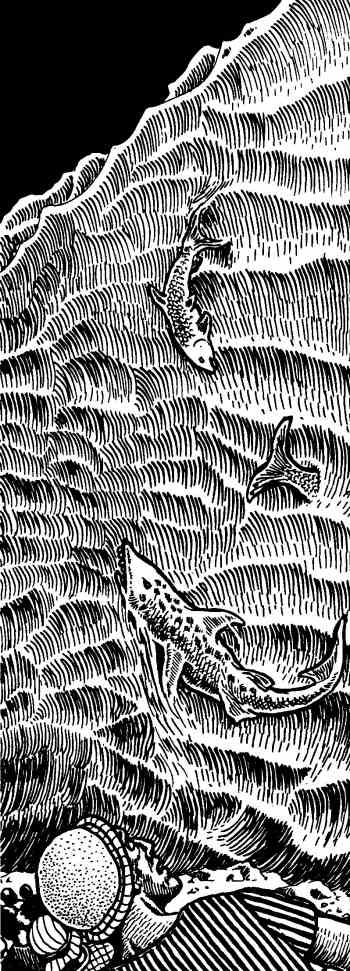THOSE who heard Moses speak wondered exactly what he meant by saying the Egyptians wouldn't appear again. Then they were surprised to see the cloud move low to a point between the Egyptians and Israelites. (Ex. 14:19-20)
The Long Night Begins
Most of the Israelites felt safer when they saw what was happening, but the Egyptians were perturbed. While the Israelites saw light from the cloud, Pharaoh and his men found themselves in a heavy fog. Even if they had chosen to attack, it would have been impossible. Not being able to see the campfires of the Israelites was very irritating to Pharaoh.
"More dramatic tactics of Moses and his God!" the king snarled. "This is intended to discourage us so that we'll go back to Memphis. But we won't!"
Not much later, in his last conscious moments, Pharaoh was to wish that he had returned to Memphis. While he tossed and turned, anxious to see daylight end, something awesome was happening only a few miles away. Moses was stretching his shepherd's rod out toward the sea. A dry, warming, east wind immediately sprang up. It grew in intensity as the night wore on. It was a peculiar kind of wind that moved in such a way that it bored into the waters with a force that divided the narrow sea in two, exposing a wide path of mud, sand and rocks!

Roaring like a gigantic waterfall, the water began to roll back before Moses' outstretched arms!
|
Everyone Ready!
Before dawn Moses sent men along the column of Israelites to tell the people to pack up and be ready to follow the cloud when it moved. To the consternation of most, the cloud moved overhead to the east and floated out over the sea! Complaints filled the air. Those who obediently walked to the beach were amazed to see, by the light of the cloud, an unbelievable water-walled corridor leading eastward across the sea!

At the lowest part of the dry seabed,
the water towered hundreds of feet above the trudging Israelites.
|
Though puzzled by this phenomenon and troubled by the howling winds, they forged on in their strong desire to get away from the Egyptians. For close to fifteen miles they doggedly plodded on between the two walls of water along a path that had been rendered dry by the arid wind.

Here and there fish would dart out of the
upright water and fall unexpectedly
to the ground.
|
Crossing the Red Sea
Making this descent into a sea bed wasn't simple. It wasn't easy to herd shying livestock past walls of water surging up and down and appearing to momentarily give way and come thundering down from its pile-up of up to three hundred feet. People and animals here increased their pace to make the crossing as short as possible over the rough, exposed ground strewn with all kinds of sea life. These objects would have been much more interesting to people who weren't fleeing for their lives.
Back at the Egyptian camp, men were puzzled by the sound of the strong wind. As day dawned, the fog lifted. Free to move, the chariots and cavalry rushed to the area where the Israelites had camped. Pharaoh was furious when he saw no signs of his quarry except burned-out campfires and innumerable tracks. It was evident that the Israelites had gone toward the sea, but there weren't any of them in sight along the shore.
Not until then did the Egyptians notice the startling path into the sea. They stared in disbelief. Then someone spotted the rear of the Israelites' column retreating several miles distant in the mammoth water ditch. Pharaoh's desire to have his army overtake Israel was so intense that it exceeded his wonder and caution.
Egyptians Plunge Ahead
"After them!" he bellowed. "If they can do it, so can you, only faster!"
His men were fearful of nearing the walls of water, now kept erect by a mysterious force other than the wind, but none dared hesitate. Pounding hoofs and rattling wheels set up a din again as the army charged down the beach and into the yawning space in the water. (Ex. 14:23)
Though the exposed sea bed was dry enough on the surface for safe walking, there was soft below-surface mud. This, along with dips and ridges, forced the chariots and horses to quickly slow down. Even so, they gained steadily on the Israelites. It appeared that in only a matter of minutes the Egyptians would be able to attack.
Several miles to the east thefront of the Israelites' column emerged from the trough in the sea and moved southward along the east shore. It was a great relief to reach higher ground, although the people were aware that the Egyptians were approaching. Those in the rear of the column were almost frantic with fear when the Egyptians were almost on them. Miraculously the cloud moved back over the would-be attackers, there to dump tons of water on them in a cloudburst. Almost immediately the exposed sea bed turned to mud. Chariots, horses and men smashed together in a helpless mass. Pharaoh's shouted orders to move on were lost in the noisy melee. What had been a powerful fighting force quickly became an impotent, directionless clutter of men and animals. (Verses 24-25)
|
There were frenzied shouts from frightened Egyptian officers ordering their men to retreat on foot regardless of Pharaoh's mad shrieks to continue after the Israelites.